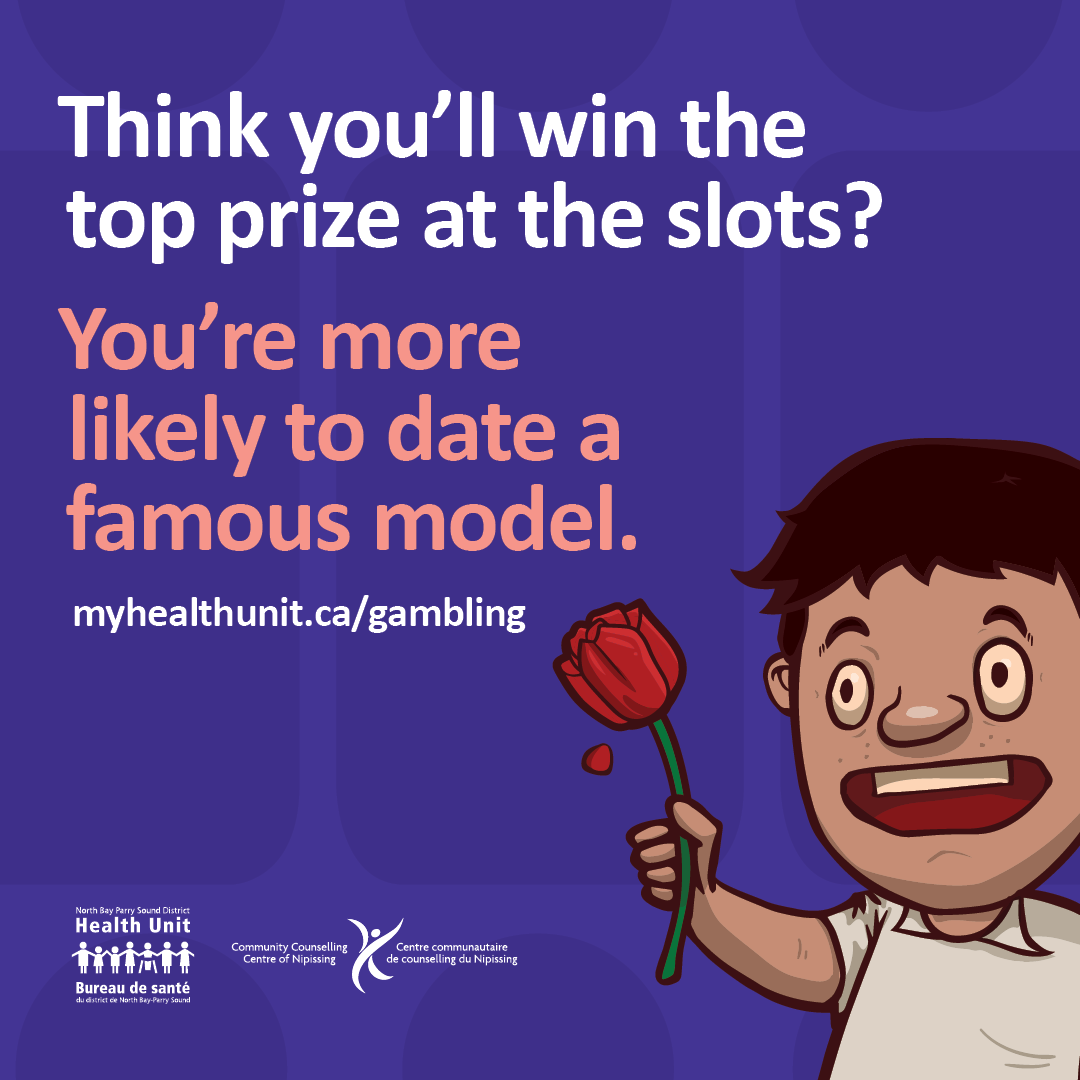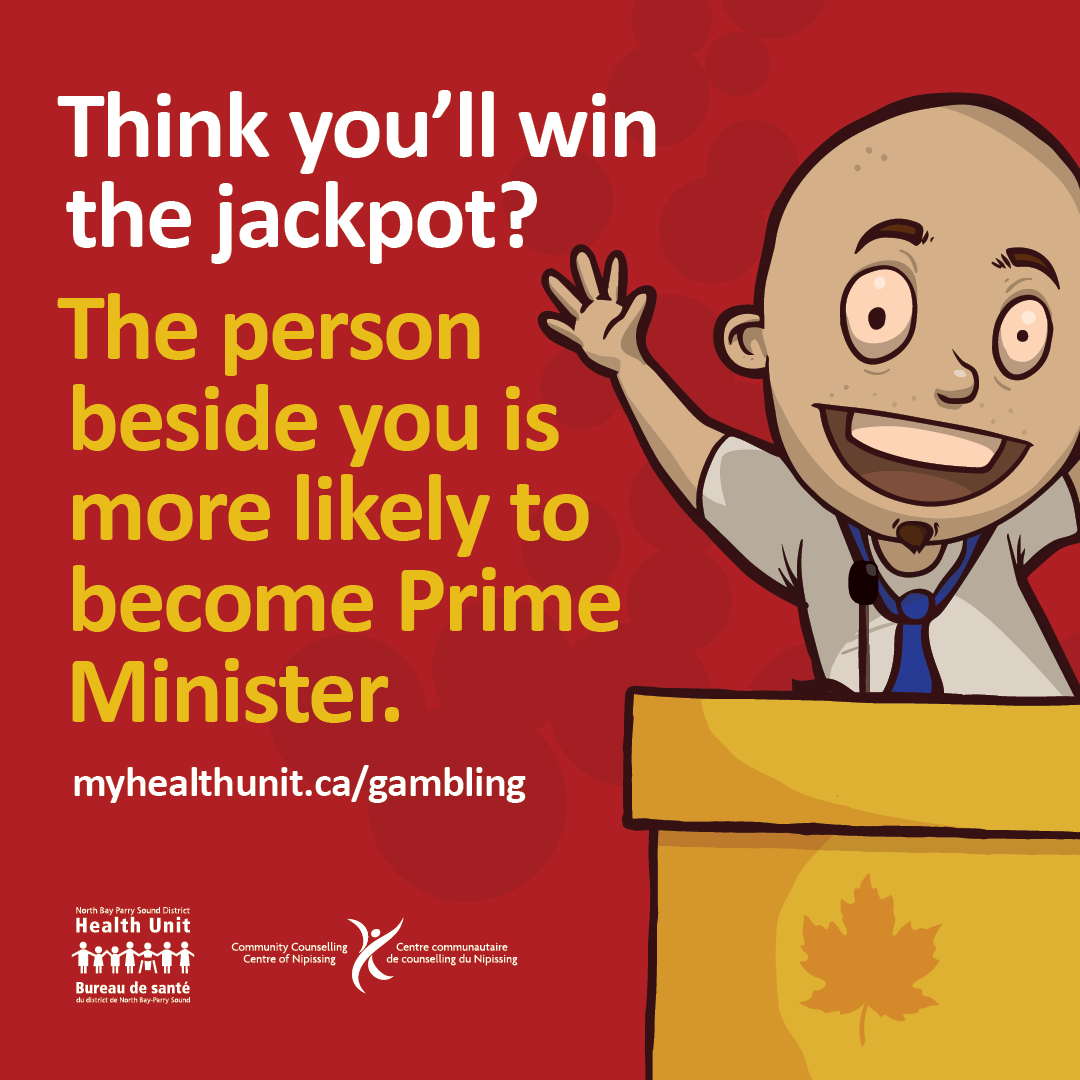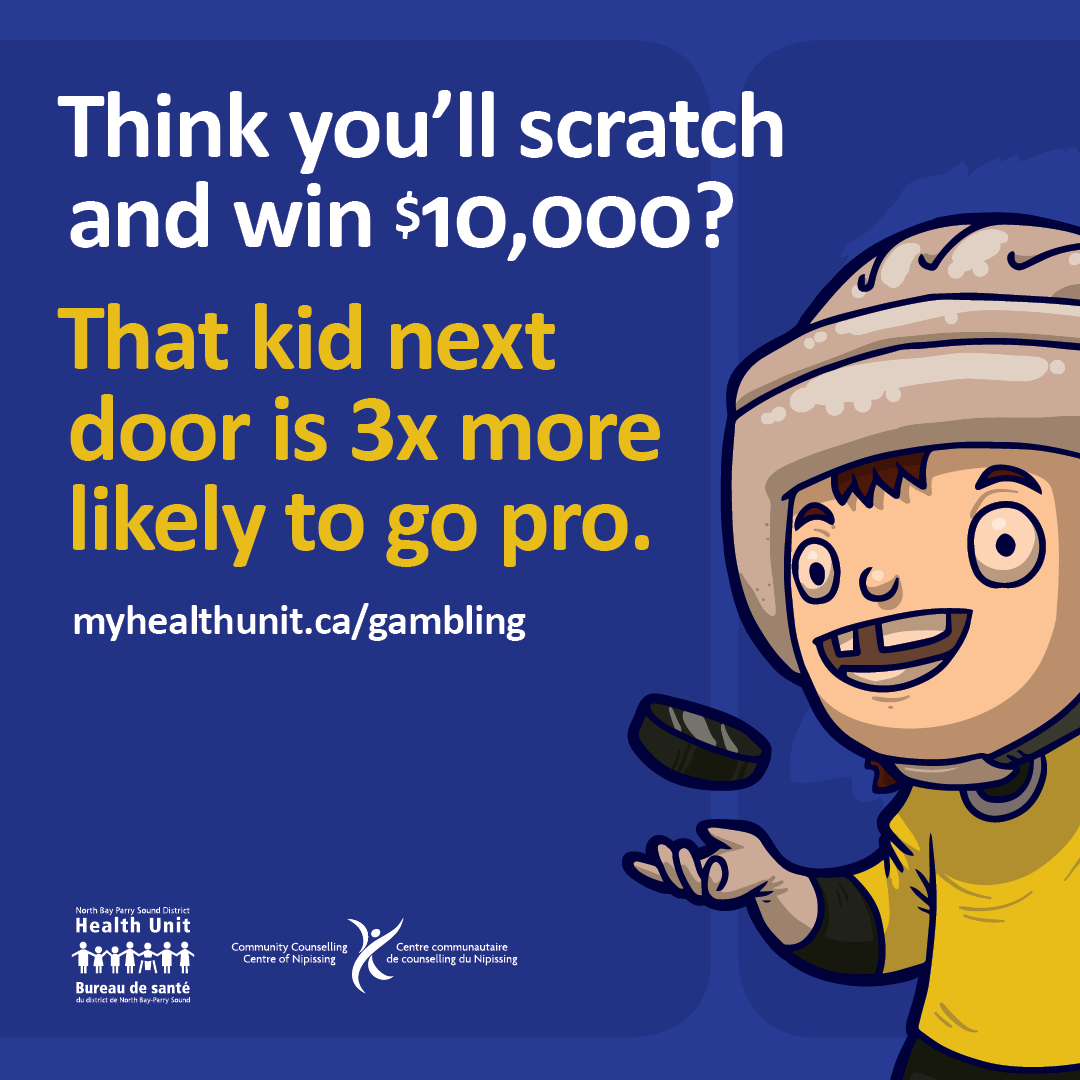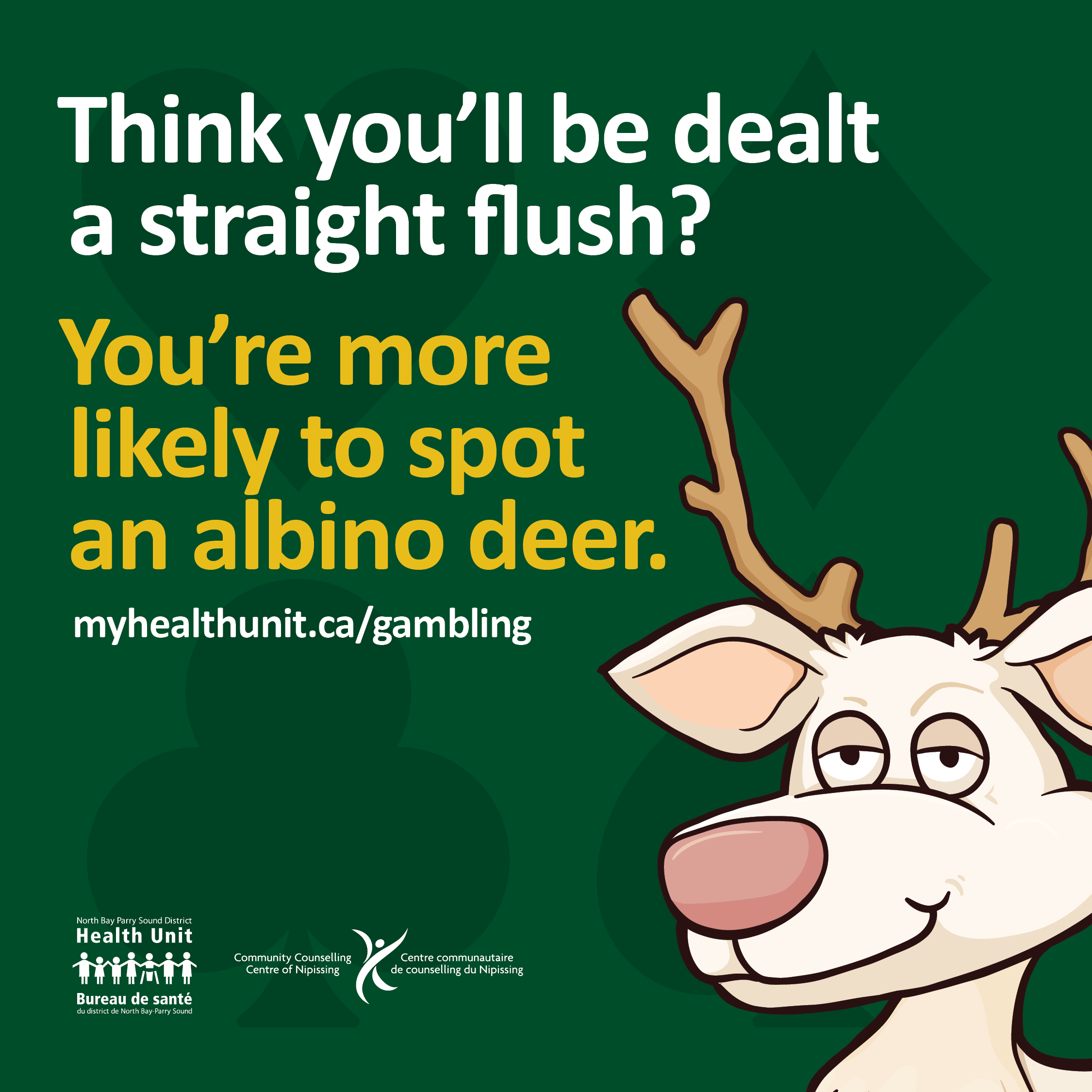What is gambling?
Gambling is when you bet something of value on an outcome of an event, with the desire to win something of more value. You don’t know if you will win or lose.
Examples of gambling:
- lottery tickets and raffles
- scratch tickets and instant games
- slot machines
- bingo
- online or in-person casino games
- playing cards or dice for money
- sports betting or pools
- betting with friends
All forms of gambling contain an element of luck. Slot machines, for example, require no skill and are solely based on luck, whereas table games, such as poker or blackjack, require a degree of skill, as well as luck.
Many people believe inaccurate information about gambling and odds. Gambling is not a moneymaker and it is far less likely that you will win big than you may think.
Being informed is important for safe gambling.
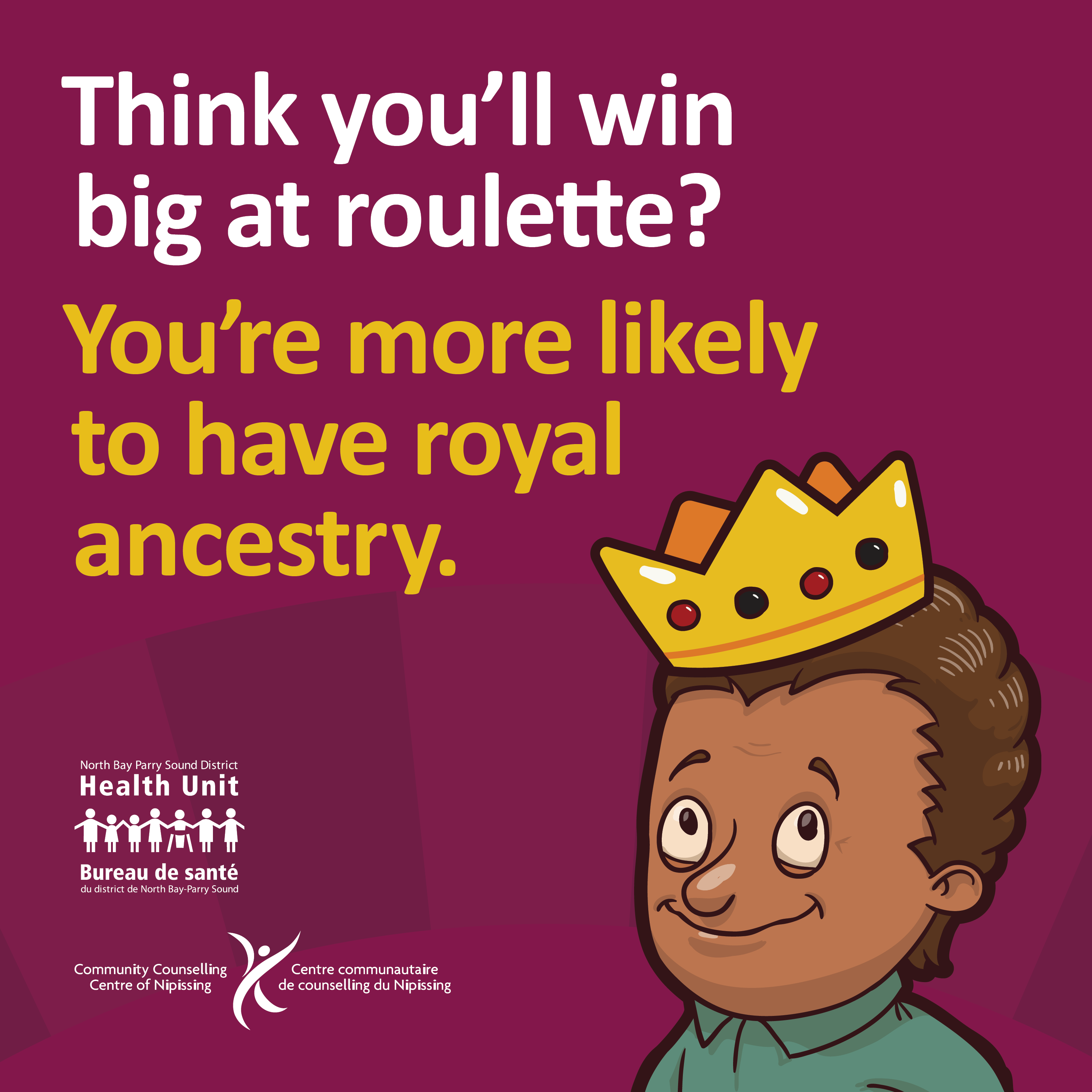
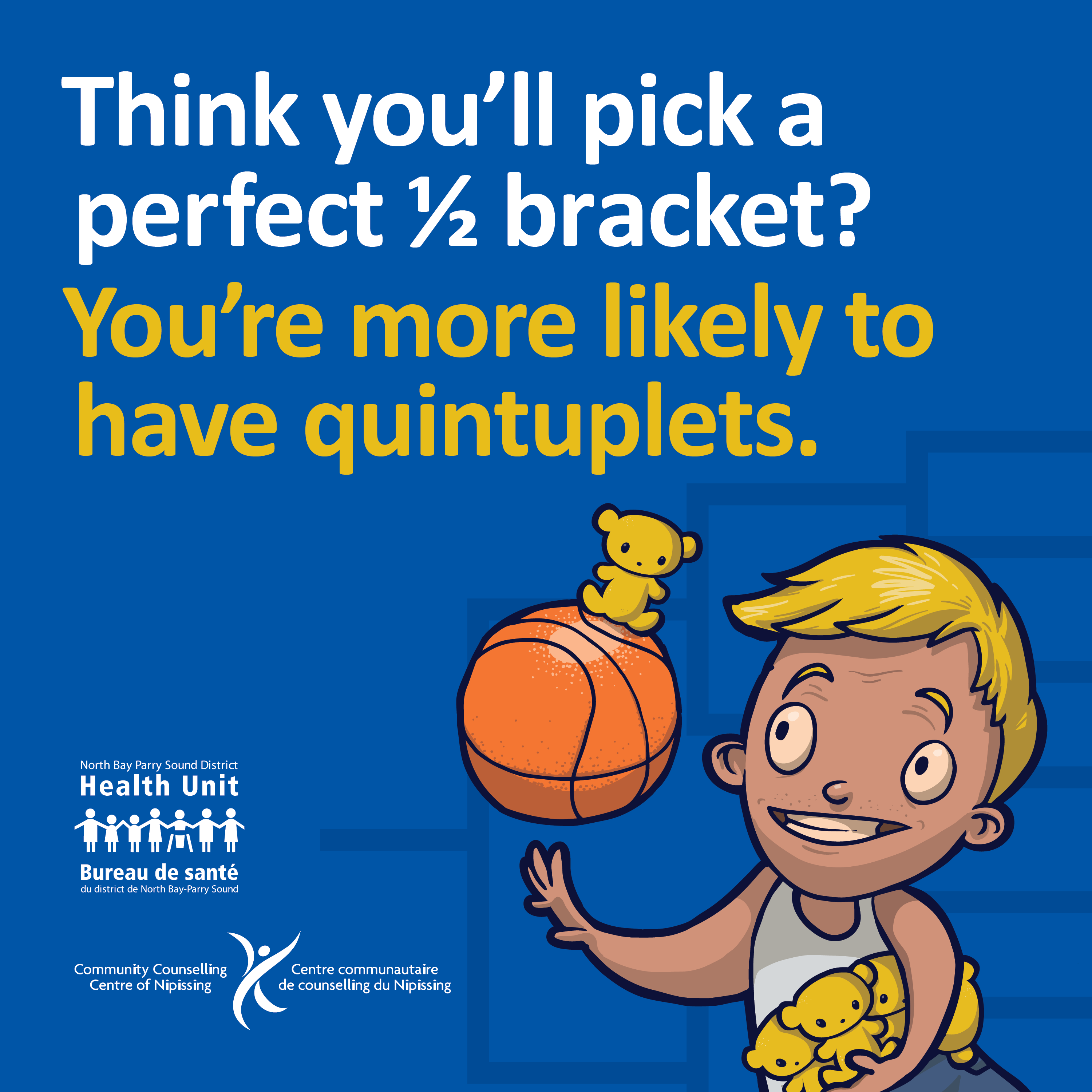
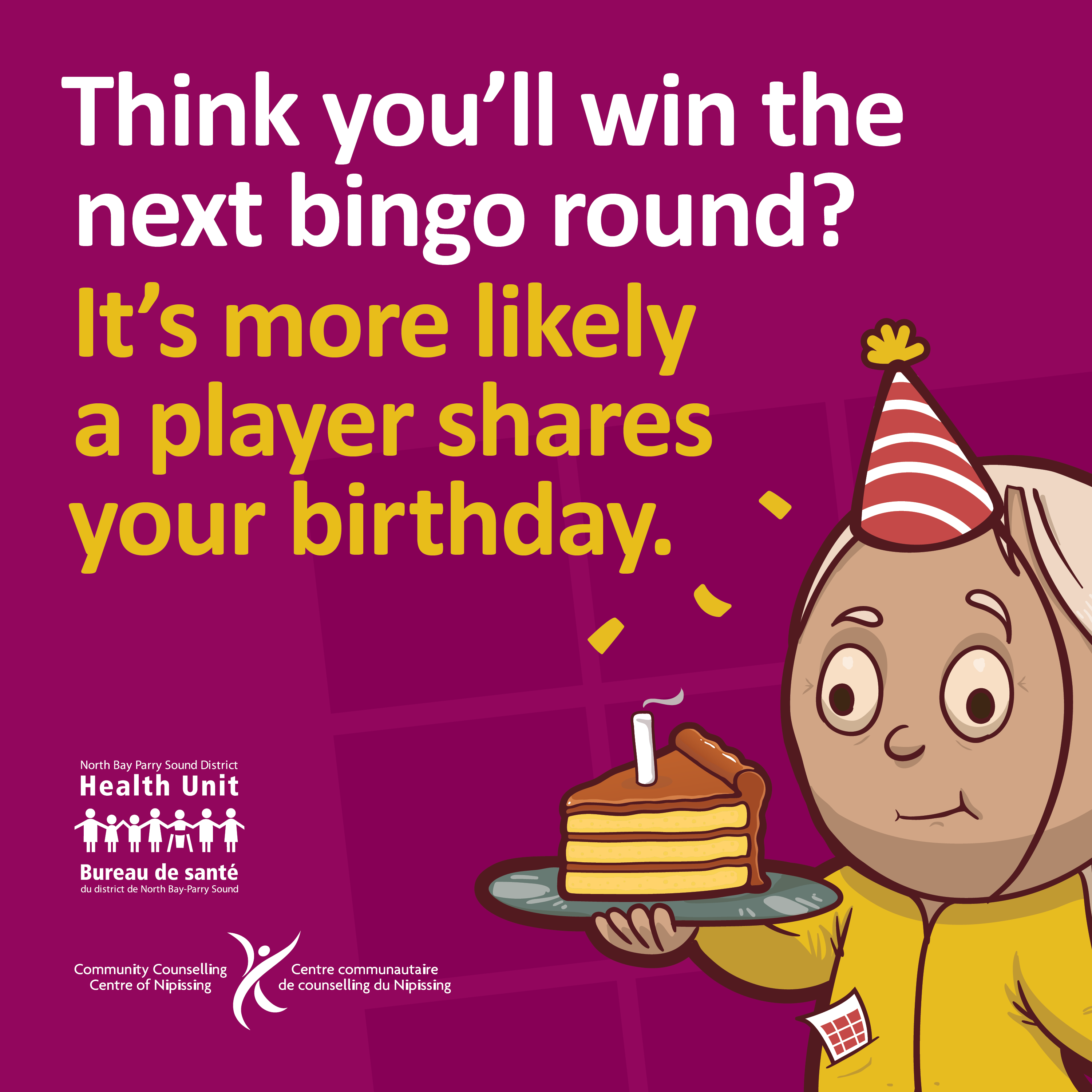
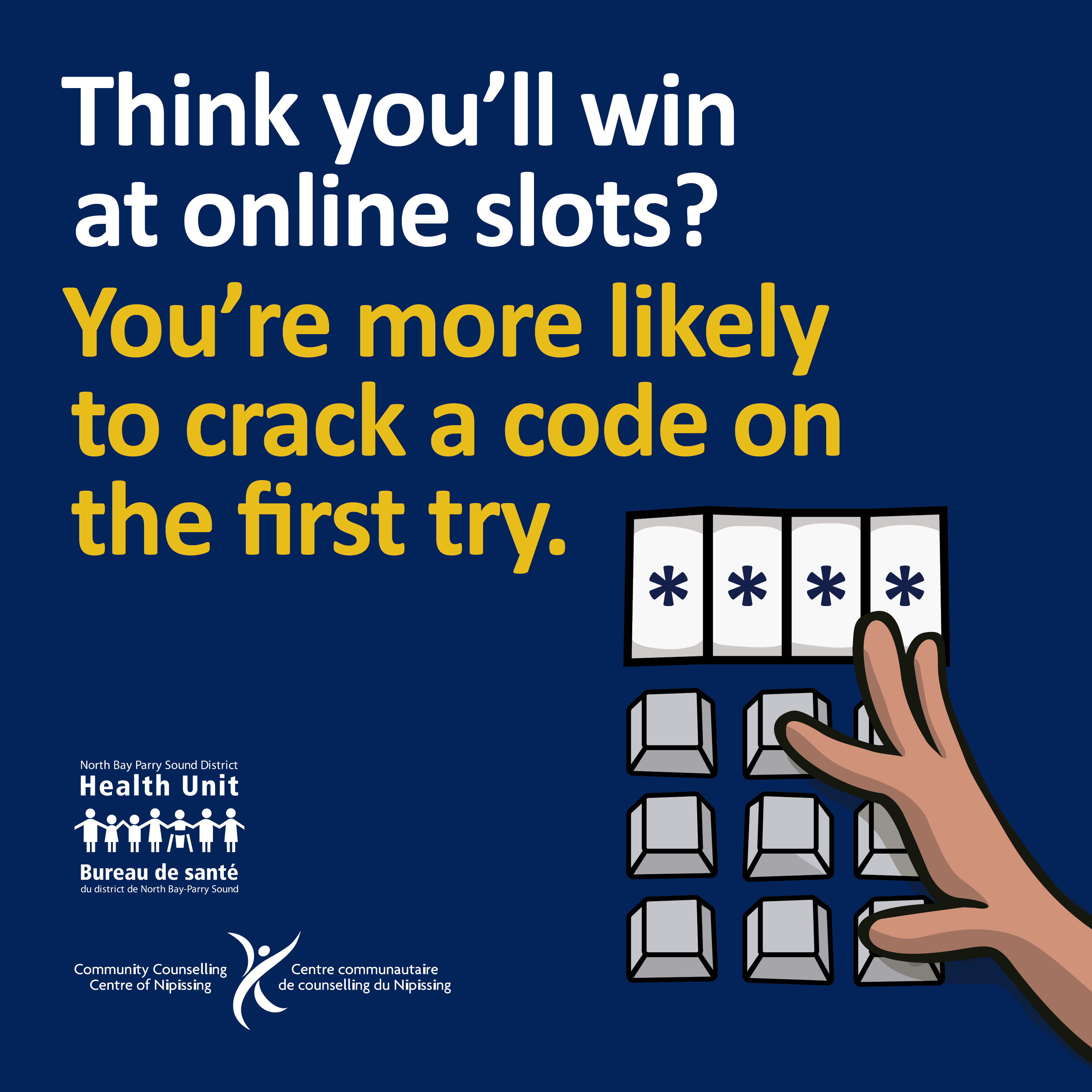
The Health Unit would like to thank Dr. Jeffery Rosenthal, Professor of Statistics at the University of Toronto for assisting with the comparative odds included in this campaign. Dr. Rosenthal is the author of Struck by Lightning: The Curious Work of Probabilities and Knock on Wood: Luck, Chance, and the Meaning of Everything.
This campaign is done in collaboration with the Community Counselling Centre of Nipissing.
What is problem gambling? |
|
Gambling for fun is not a problem, but gambling becomes a problem when it causes problems. Problem gambling happens when a person starts to lose control of their gambling behaviour. Gambling becomes a kind of obsession, and is no longer fun. When this happens, a person and their loved ones can experience serious harms and consequences related to finances, work, relationships, as well as mental and physical health. People of all ages, income levels, backgrounds and cultures can be affected by problem gambling. Problem gambling can happen suddenly or over the course of many years. It can develop for a number of different reasons with many factors, such as difficult life circumstances or trying to win back money lost. Risk Factors for Problem Gambling Certain factors can make a person more at risk of problem gambling, such as:
|
Signs of problem gambling |
|
Using gambling as a way to cope with stress, spending more money than you can afford, and keeping gambling behaviour a secret are a few signs that problem gambling may be occurring. Problem gambling will look different for each person, so CAMH put together a long list of potential signs, click on the link below: If you think you or someone you know may be experiencing negative impacts of gambling, this short quiz by CAMH will help you understand if gambling is harming your life and where to get help: http://www.problemgambling.ca/gambling-help/PGSIscreener/Registration.aspx Do you think gambling might have a negative impact on your life? This short quiz by CAMH will help you understand if gambling is harming your life and where to get help: http://www.problemgambling.ca/gambling-help/PGSIscreener/Registration.aspx |
Tips for safer gambling |
|
If you gamble, here are tips to help you play safe and lower your risk of gambling harm:
|
Why do people gamble? |
|
Gambling is a popular form of leisure activity, as most adults engage in gambling at least once in their life. While most people gamble occasionally or not at all, some people gamble more frequently. Research shows that the main motivation of all gamblers is the desire and hope to win money or something of value. People also gamble as a form of amusement and excitement, to socialize, and to support worthy causes. Gambling can also be a coping mechanism or an emotional escape, which is a common trend amongst people who experience problem gambling habits. |
Self-help tools |
CAMH
Responsible Gambling Council
OLG
|
Where to get help |
|
Below is a list of professional services and tools available to support you:
|



